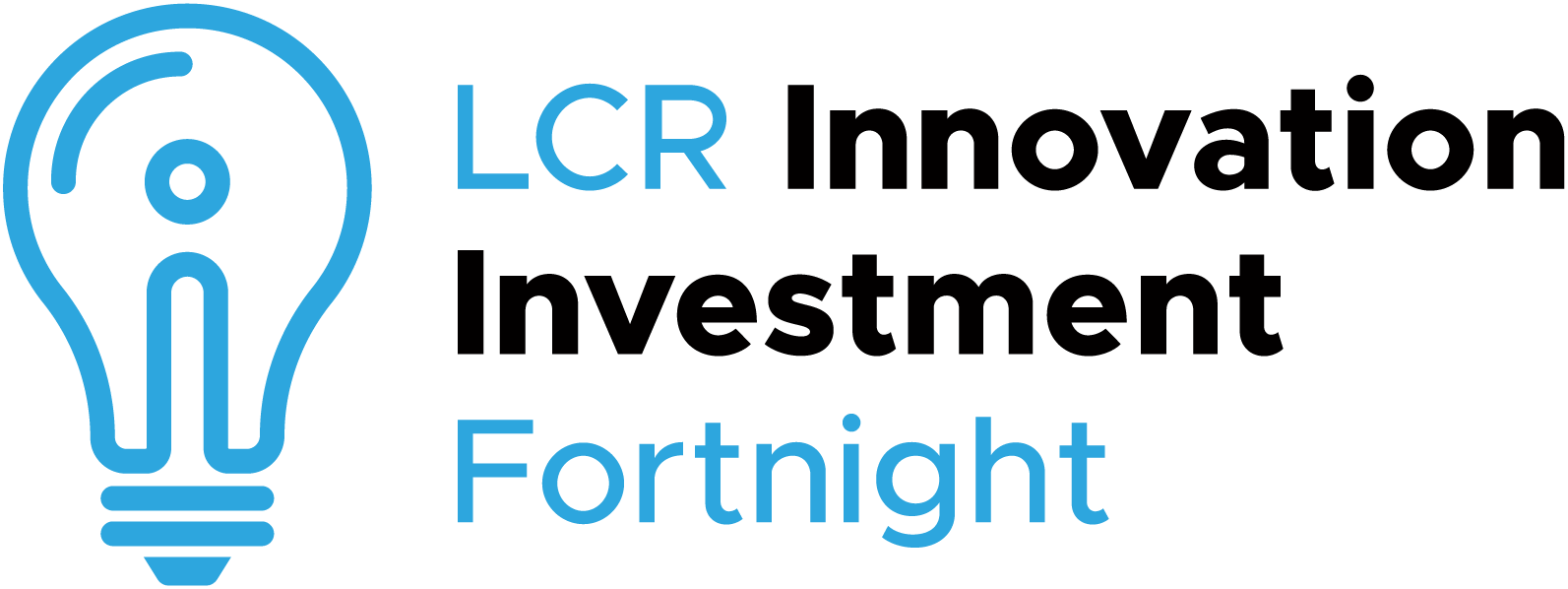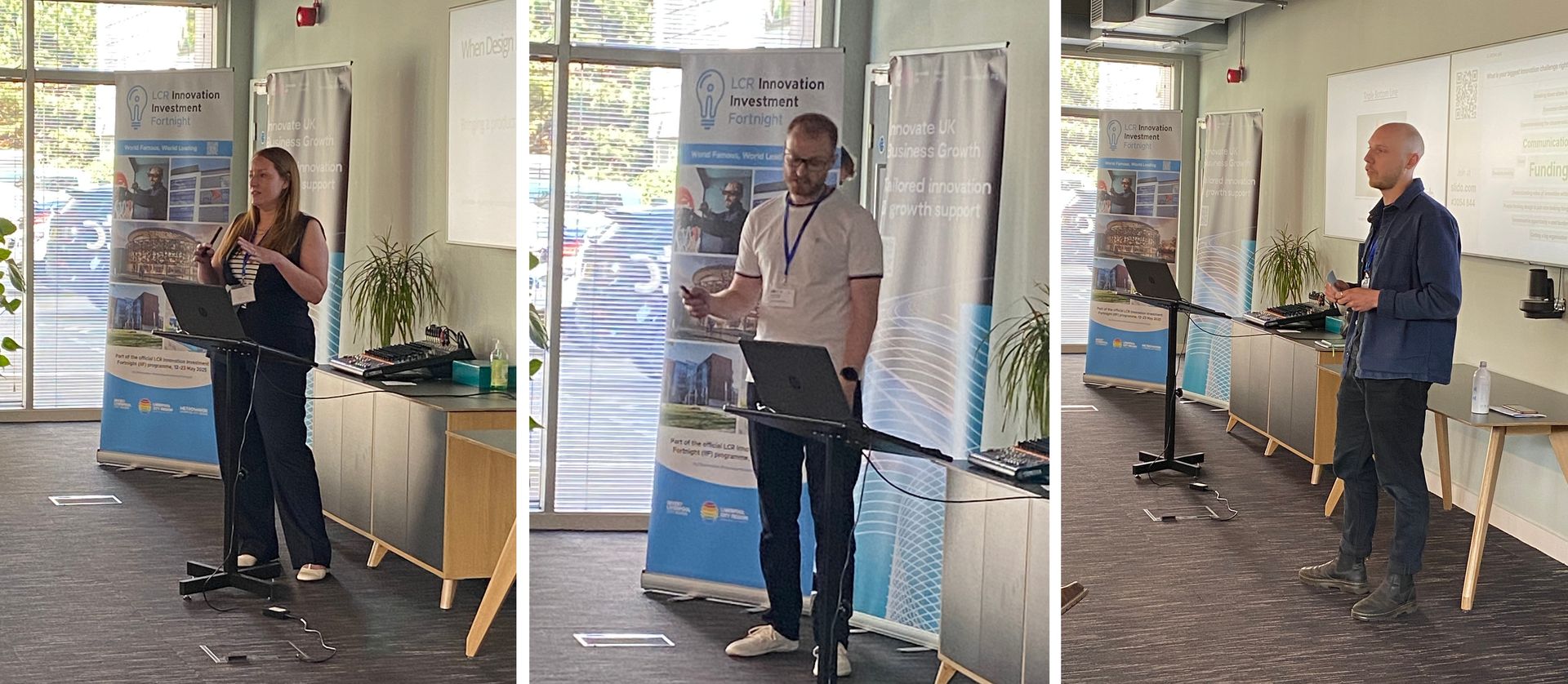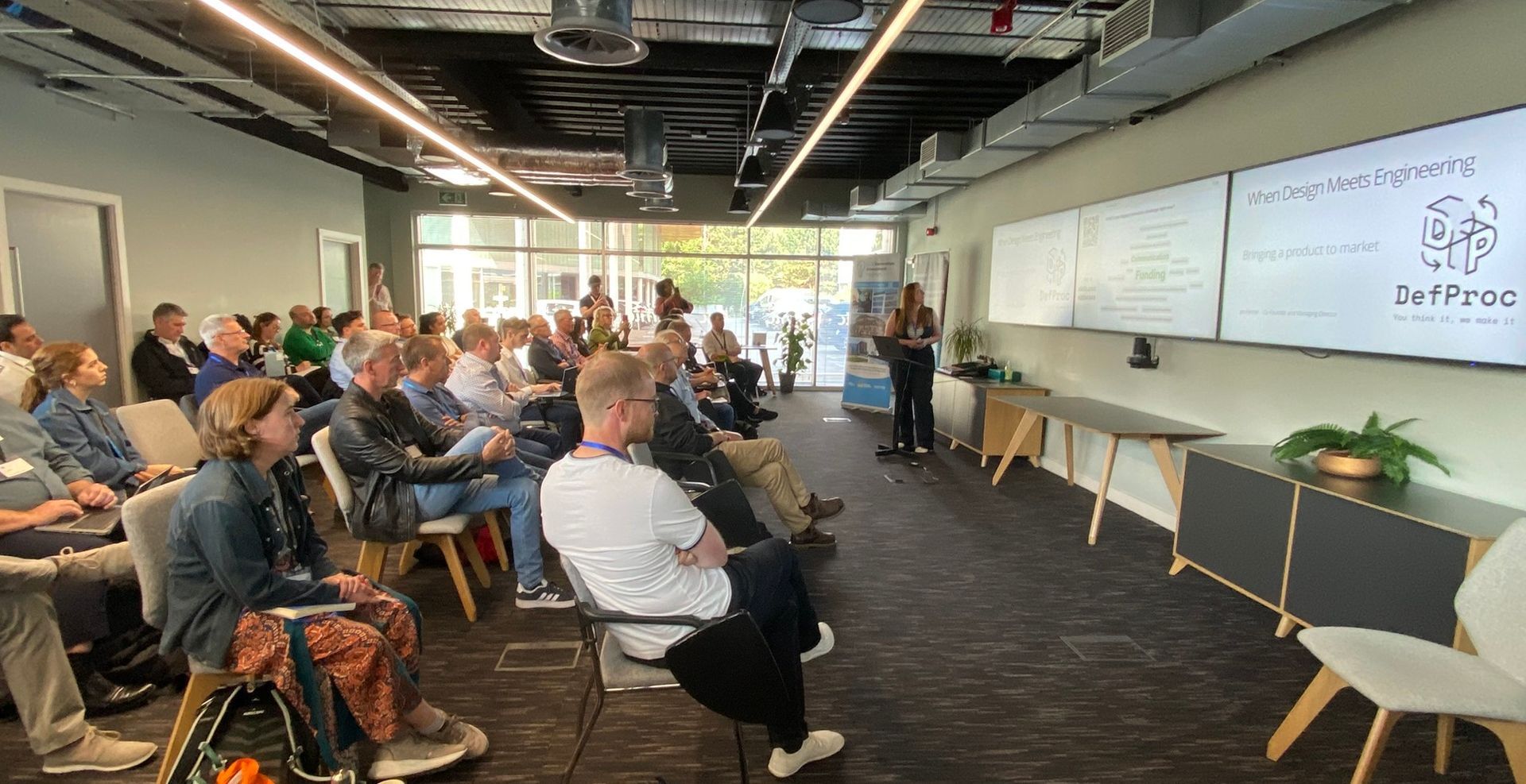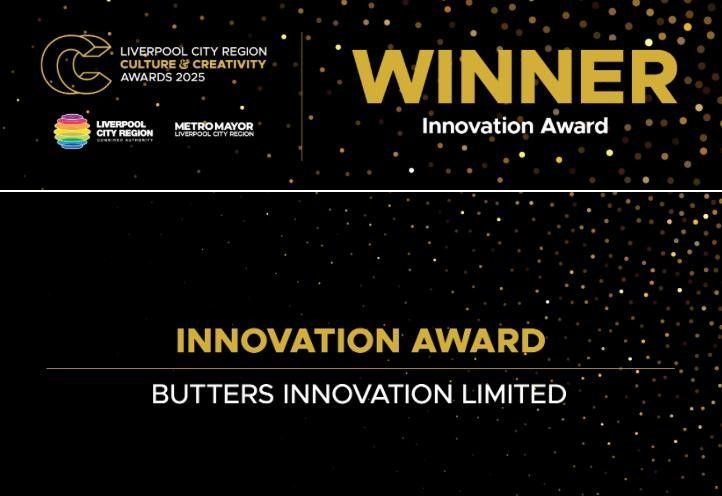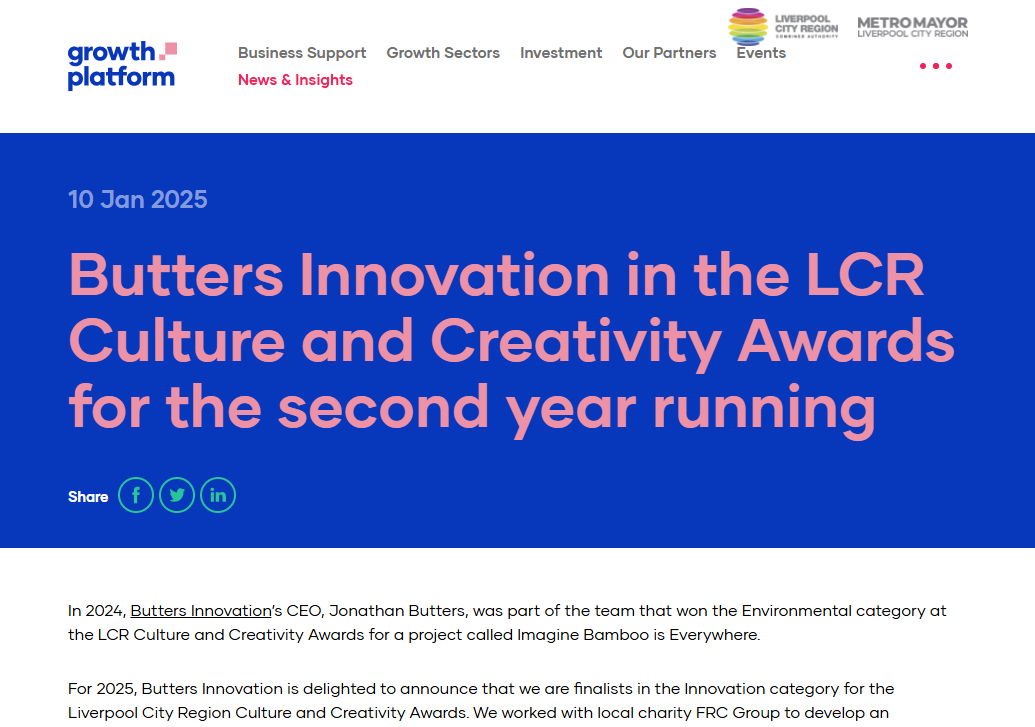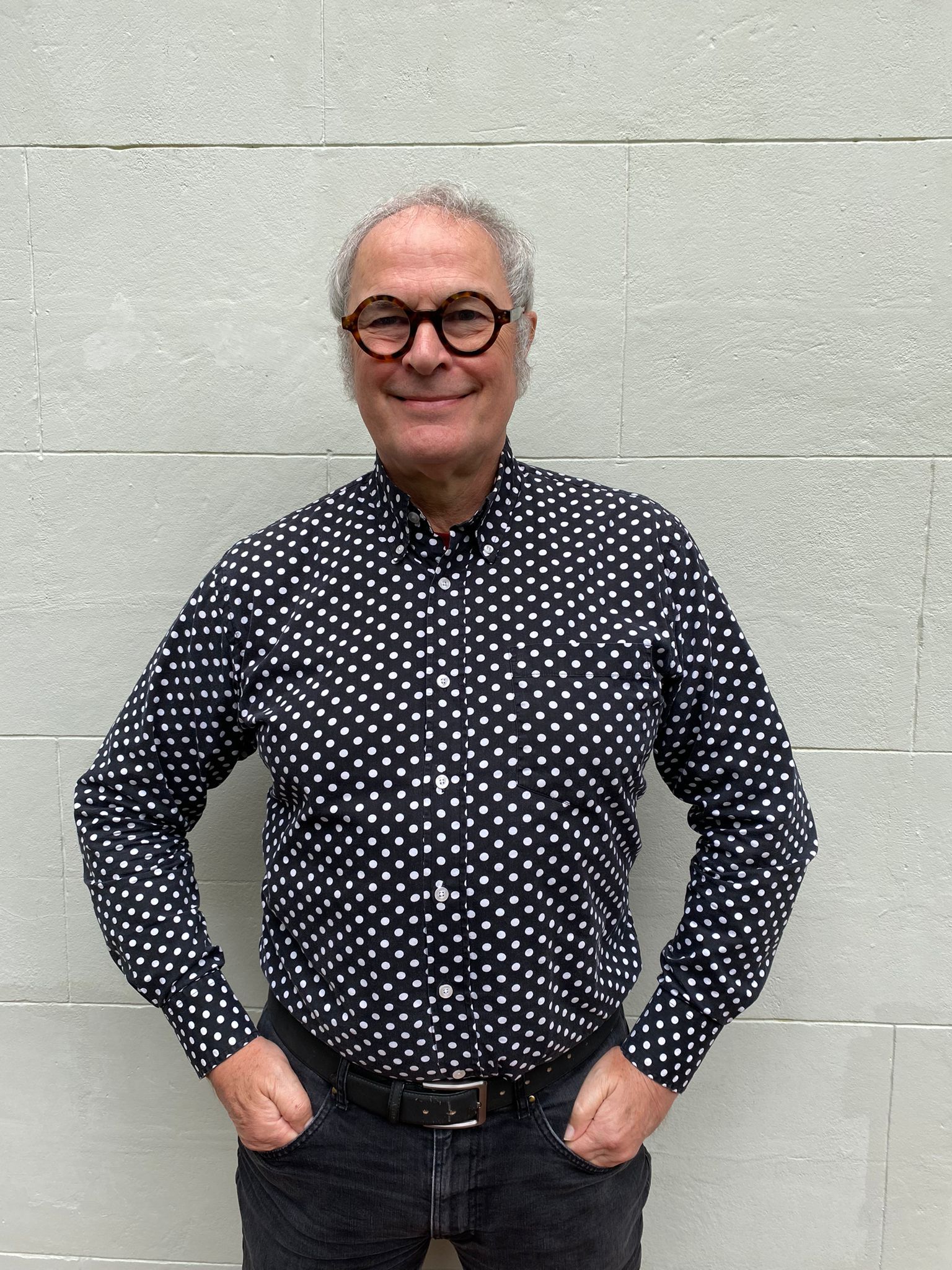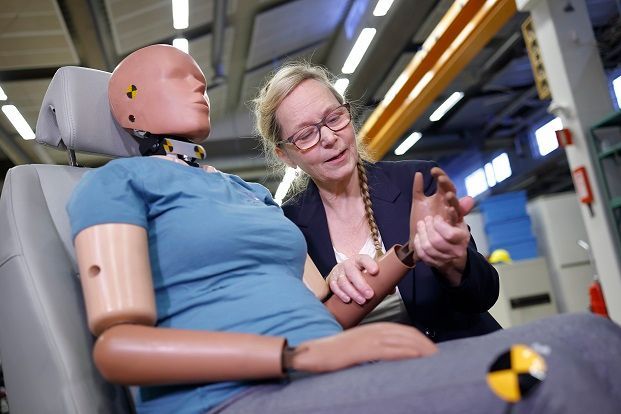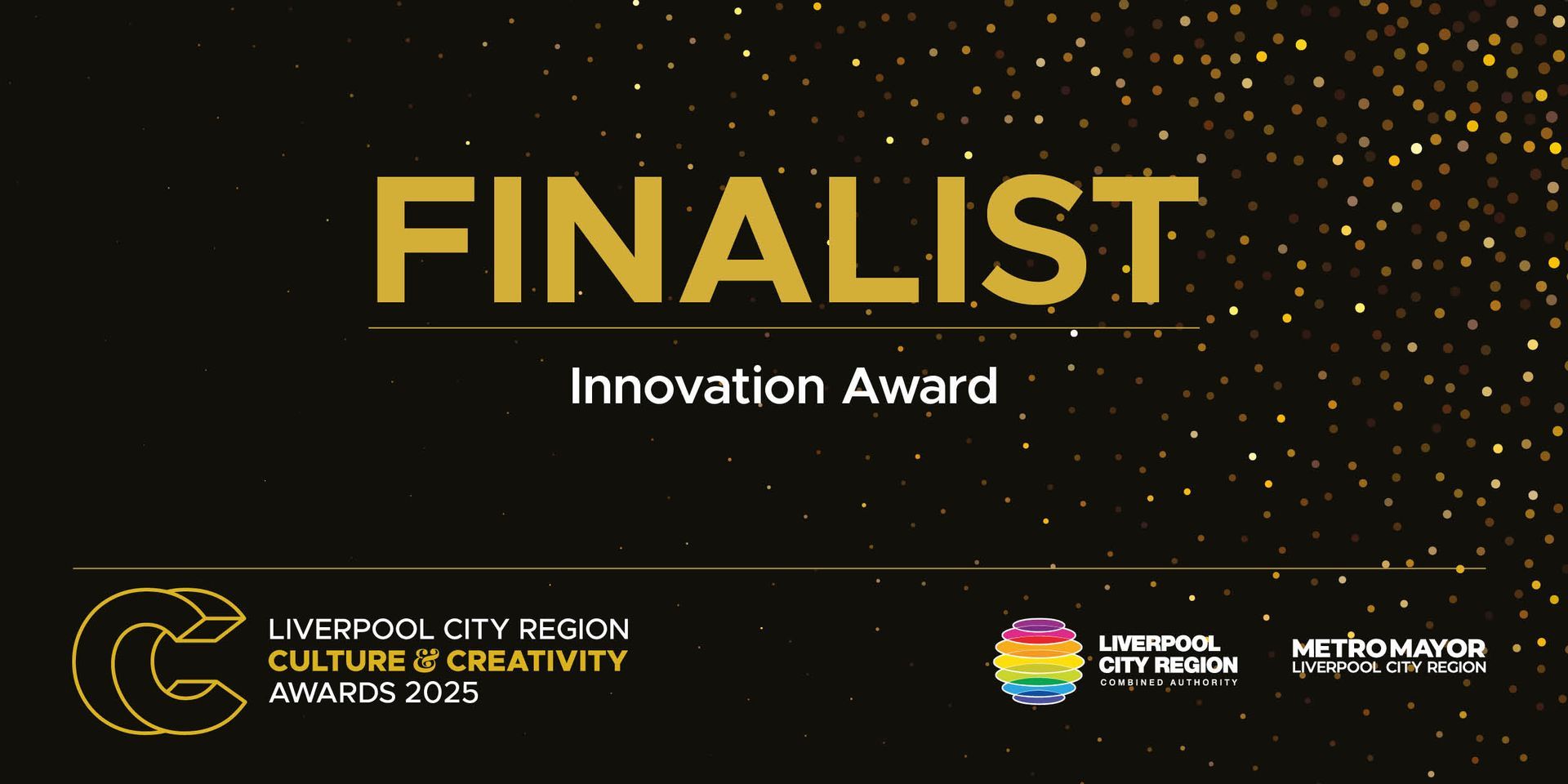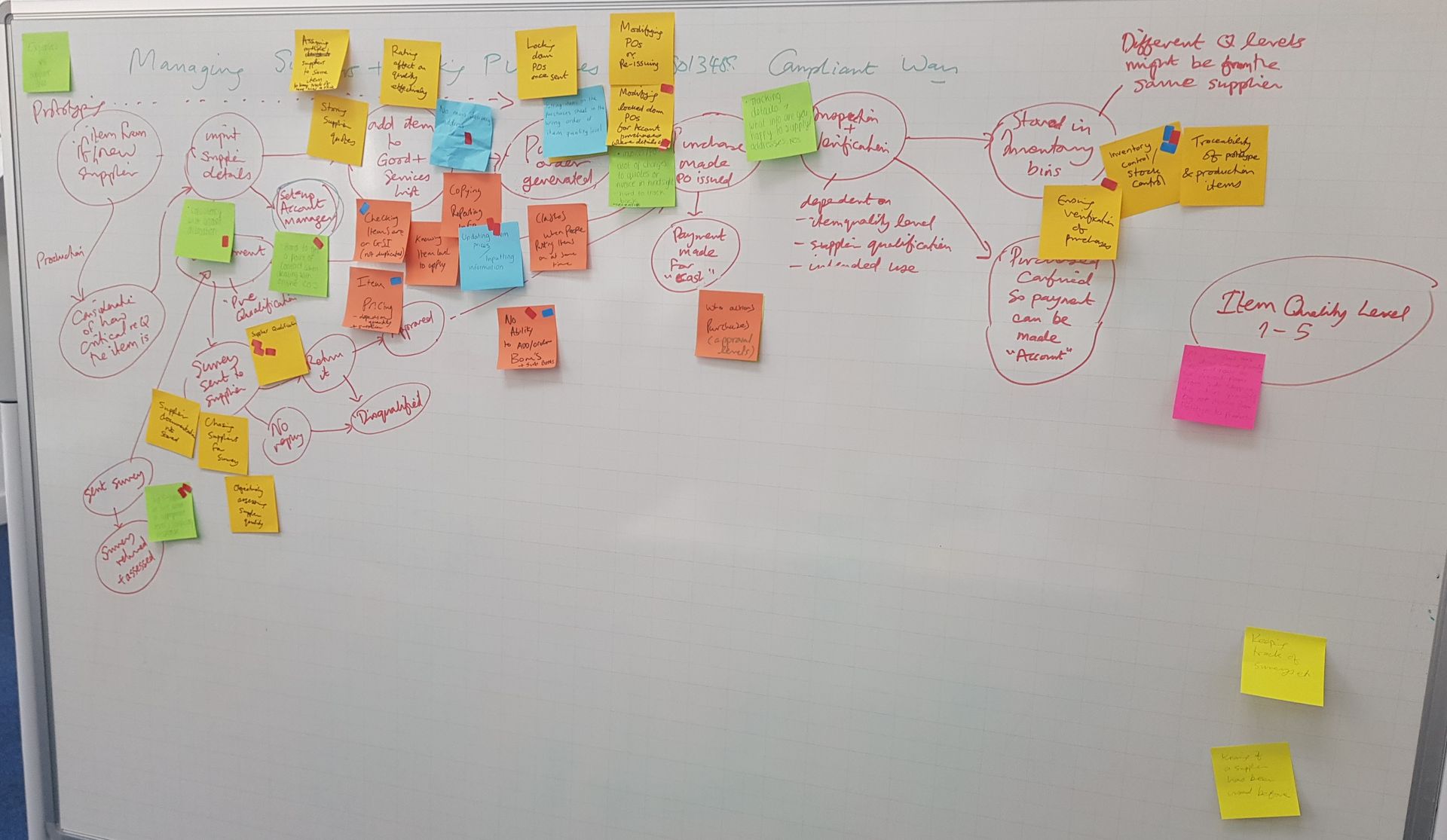Strategic Industrial Design Creates Value and Impact
Highlights from the Design in Innovation Summit, part of LCR's Innovation Investment Fortnight
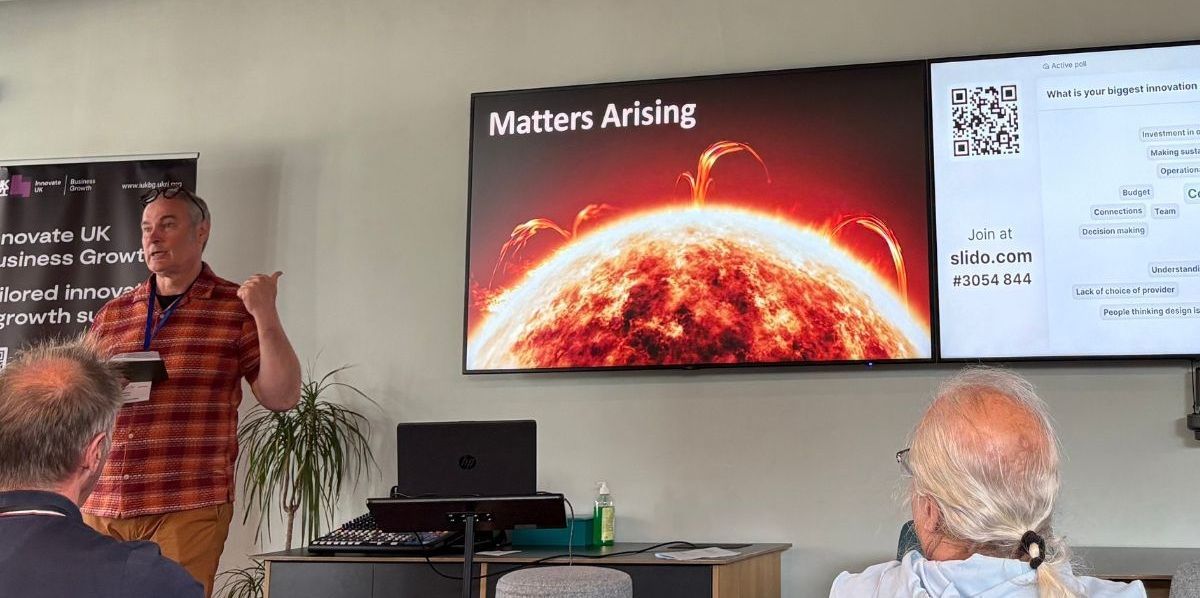
This May 2025, we brought together over sixty industrial designers, entrepreneurs, ecosystem enablers, academics and innovation experts for the Design in Innovation Summit, part of Liverpool City Region’s Innovation Investment Fortnight. Co-hosted with Innovate UK Business Growth at MTC Liverpool, the event spotlighted the value of strategic industrial design in de-risking and accelerating innovation.
Too much R and not enough D!
Often, innovating businesses are signposted toward academic or tech-based Research & Development providers when what they really need is commercially grounded, human-centred design expertise. And the funding available for product innovation is often focussed on research and technology, rather than impact. Obviously the research-led organisations are part of the story and have a lot to offer, but we wanted to shift the narrative and show that strategic industrial design isn’t just about aesthetics or prototypes; it’s about solving the right problems, for the right people, in the right way - and delivering commercial, environmental or societal impact.
The geographic reach of the attendees (including from London, the South Coast and Bristol) and the feedback after the event highlighted the need for this discussion, and how rare it is that industry professionals gather to discuss this thorny topic. As Megan Foden, Innovation Consultant and Design Lead at Alder Hey Children’s Hospital, put it:
“This session completely reshaped how I think about design in innovation. It showed how inclusive, user-led design can drive creativity, de-risk innovation, and accelerate real-world impact. A brilliant blend of strategy, empathy, and practical tools.”
Bethany Procter, Innovation Specialist at Innovate UK Business Connect "found this summit to be insightful and inspiring. It honestly explored the challenges and triumphs that the design sector encounters, and emphasised design’s undeniable role in successful, ethical and valuable innovation."
Design as Risk Reduction
We heard compelling case studies demonstrating how human-centred design thinking, from the earliest stage of innovation projects, can prevent costly missteps down the line - lead to solutions which are more inclusive, more focused and more commercially viable.
Deborah Dawton, CEO of the Design Business Association, encouraged a rethink of innovation funding priorities:
“Shouldn’t we be encouraging businesses to do D&D — Design and Development — instead of R&D? The current emphasis on research seems to result in it going on for a very long time, and it doesn’t half chew up your cash!”
Barriers to Scaling Innovation
We had honest conversations about the need for stronger and more direct collaboration between designers and the high-profile research and technology organisations that dominate the innovation ecosystem. Whilst the industrial design sector, and the consultancies within it, are small, their impact is huge! Designing successful solutions means much greater economic, environmental and societal impact - it’s a value creator!
But this potential is often overlooked or ignored, reducing the potential of innovation projects. As Megan Foden said, the event had “honest conversations about the real barriers to scaling innovation: unclear routes to design support and related activities from research to testing with real users, and the undervaluing of early-stage design input.”
Bridging the Gap
A key aim of the event was to explore how better connections between industry, intermediaries and commercial design providers can help innovation funding go further - and it was the start of some great conversations. As Fatima Farah, Innovate UK Business Growth put it, “Let us continue to build a design community that does not just talk about innovation but leads it.”
Our CEO, Jonathan Butters, is working on a White Paper on how to connect with the strategic design sector and will be working with Innovate UK’s Innovation and Growth Service to reinforce the value of engaging with the sector.
We’ll also be organising a regular “Innovation Barn Dance” at our new premises in Central Tech, to bring all those involved in the innovation ecosystem together, and increase the gene pool of the Liverpool City Region’s innovation villages!
Many thanks to our panellists and presenters, who shared so many insights on the day! In order of appearance:
- Charlotte Corke, Innovation Consultant, Butters Innovation
- Andrew North, Innovate UK Business Growth
- Richard Birkin, Innovate UK Business Connect
- Jonathan Butters, CEO, Butters Innovation
- Deborah Dawton, Chief Executive, Design Business Association
- Matt Langford, Founder, People Planet Product
- Rachael Curran, Founder, bitbaby
- Jonny Marchbank, Founder, Riptide
- Jen Fenner, Co-Founder and Managing Director, DefProc Engineering
- Alistair Williamson, Managing Director, Lucid
